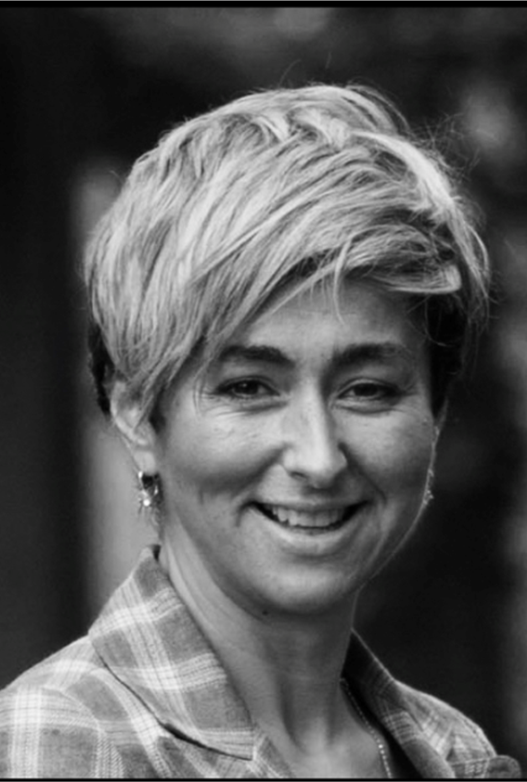
Dr Carolyn Blair
Dr Carolyn Blair is an experienced Research Fellow in the School of Nursing and Midwifery at Queen’s University Belfast (QUB), working with Professor Joanne Reid and the International, Multidisciplinary Cachexia Team led by Professor Reid.
Relevant to multimodal interventions for cachexia management, Dr Blair’s PhD was focused on eating related difficulties and family dynamics. She has extensive experience of designing, delivering and evaluating psychosocial interventions and is a qualified fitness instructor specialising in resistance training.
Dr Blair has a strong background in Personal, Public Involvement and Engagement (PPIE) in research, and in collaboration with Professor Reid is currently organising PPIE activities to help develop psycho-social support for patients and their caregivers in relation to renal cachexia.
Dr Blair has completed Cochrane systematic review training and has published (inc. in press): 4 systematic reviews, 3 systematic scoping reviews, 4 mixed methods studies, 3 qualitative studies, 2 participatory research studies, 2 rapid evidence reviews, 1 protocol, and a cross-sectional study.
Dr Blair is the lead researcher on a phenomenological study exploring the experiences of individuals with renal cachexia and their caregivers, and the lead researcher on a QUB/Marie Curie project exploring loneliness in terminal illness. In collaboration with Professor Reid and the International Team, Dr Blair is currently leading a novel theory of change publication related to developing an evidence and theory based multimodal integrative intervention for the management of renal cachexia.
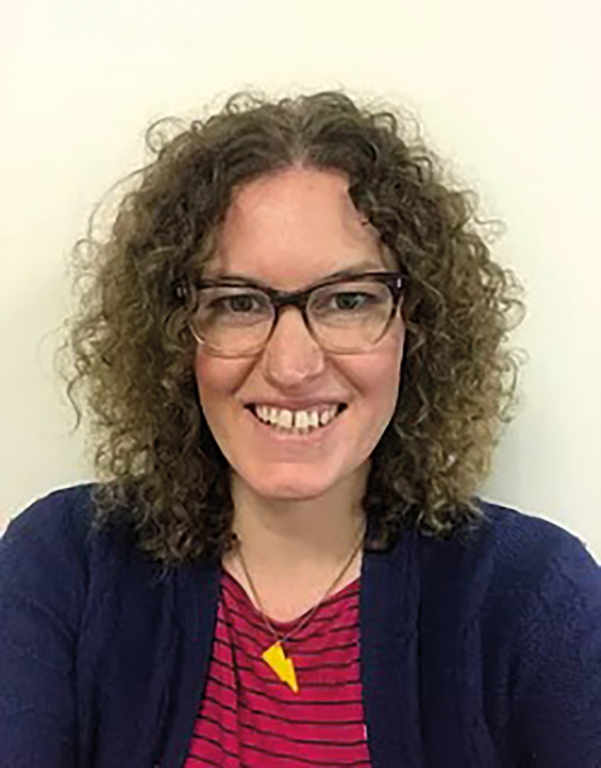
Dr Trisha Forbes
Since the completion of her undergraduate Psychology degree in 2004, Dr Trisha Forbes has gained extensive experience as a mixed-methods researcher.
While working in various fields as a Research Assistant, Dr Forbes completed an MPhil in 2009 and the British Association of Counselling and Psychotherapy accredited Certificate in Person-Centred Counselling in 2010.
Dr Forbes completed her PhD in the School of Education at Queen’s University Belfast (QUB) in February 2018: this was a qualitative inquiry exploring young peoples’ perceptions of suicide in an area outside West Belfast, and their feelings of connectedness to the community.
More recently Dr Forbes has worked as the Post-Doctoral Research Fellow on various projects including:
- Adapting Digital Social Prescribing for Suicide Bereavement Support
- The iAmAWARE project about mental health in the workplace
- The PETT study, a pilot RCT of talking therapies for PTSD in military Veterans
- Carers-ID, focusing on the impact of the COVID-19 pandemic on family carers of those with PMLD
Dr Forbes has recently joined the Renal Arts Group (RAG) and to begin work on the PAINT Project, an international mapping exercise of arts-based interventions for those with renal disease. Funded by NI Kidney Research Fund, Dr Forbes will be leading on this exercise in partnership with World Health Organization (WHO), UF Center for Arts in Medicine, Waterford Healing Arts Trust and Chong Hua Hospital, Philippines.

Dr Michael Toal
Dr Michael Toal is a Specialist Trainee in Renal Medicine and NIKRF Doctoral Fellow. Dr Toal started a PhD in Queen’s University of Belfast in August 2022.
This research project will investigate IgA Nephropathy, a leading cause of kidney failure, particularly in young people. Dr Toal is aiming to find new strategies to help to identify patients at the highest risk and allow for early treatment and prevention of disease progression. His previous projects have been presented across the UK, the Republic of Ireland and in the United States.
Dr Toal is also the team doctor for Transplant Sport NI and attended the British Transplant Games in Leeds with around thirty athletes from Northern Ireland in July 2022.
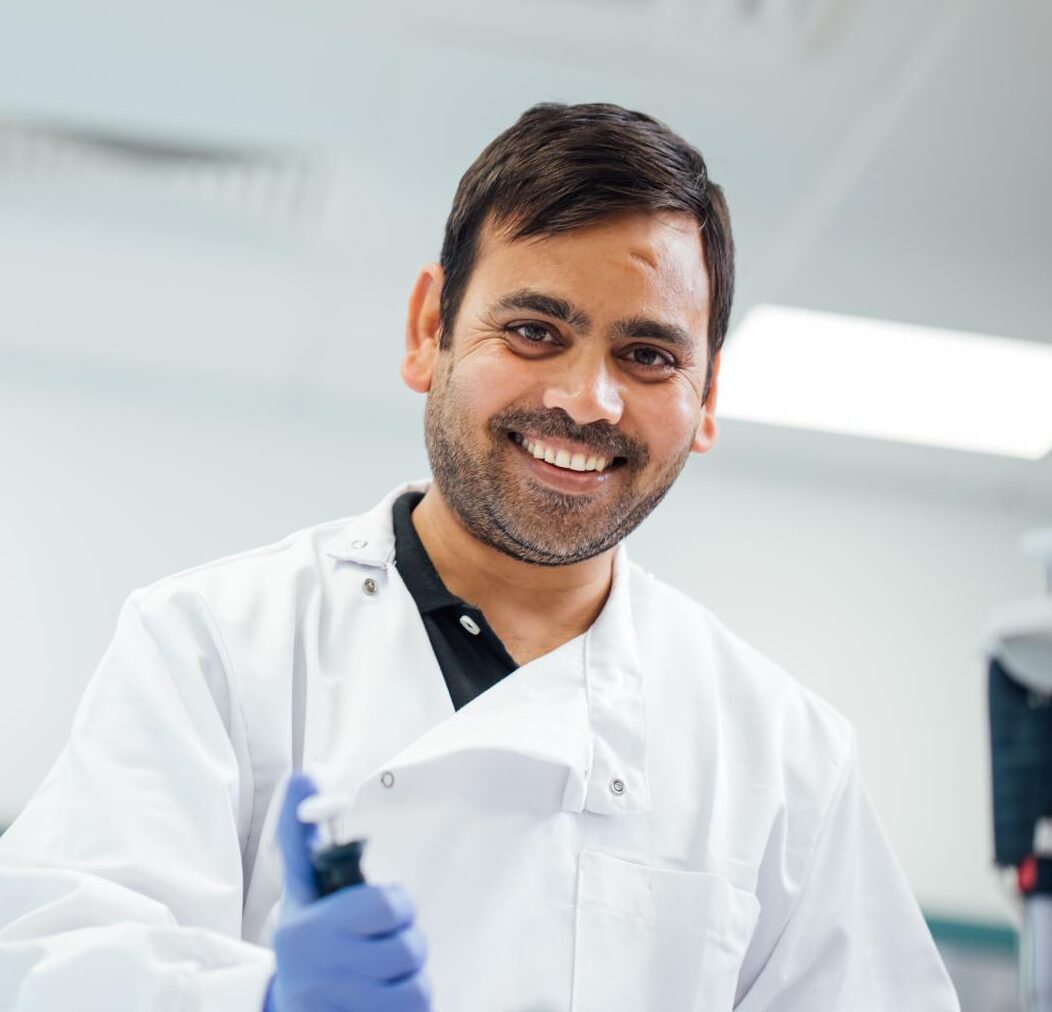
Dr Yogesh Gupta
Environmental exposures increase risk for multiple diseases, including chronic kidney disease and cancer. The modern expansion of industrialization, fossil fuel combustion and use of high amount of chemical fertilizers in agriculture has led to a rising global toxic elements pollution in air, water, and food.
Dr Yogesh Gupta’s research work aim is to identify biological signature (genetics/epigenetics) associated with toxic elements exposure such as arsenic and their effects on chronic kidney disease conditions.
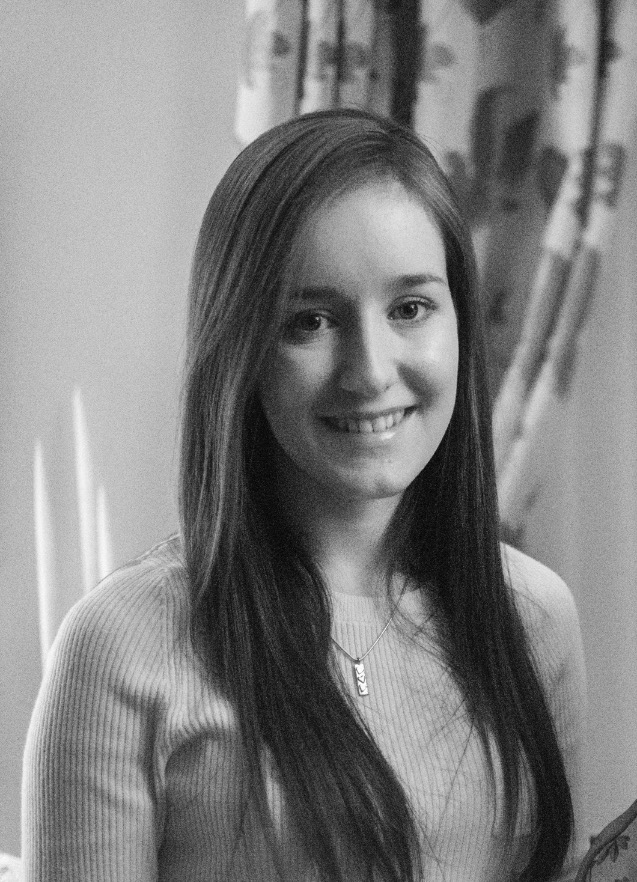
Dr Laura Smyth
Dr Laura Smyth PhD BSc is a recipient of a post-doctoral research fellowship funded by the NIKRF. NIKRF have supported Laura for several years whilst she researches links between DNA methylation (an epigenetic feature linking a person’s lifestyle such as diet, medication, exercise, to inherited factors from their parents) and kidney diseases.
Laura uses data ascertained as part of the Northern Ireland Cohort for the Longitudinal study of Ageing (NICOLA), which is a large-scale population-based long-term public health study. She is maximising existing resources to cost-effectively examine multiple measures of renal function and evaluate >850,000 unique methylation sites in the genome for association with kidney disease. Using the latest technology, she aims to identify biomarkers to help earlier diagnosis and in time, be able to track how biomarkers change as kidney disease progresses.
Links to Laura’s research papers:
https://www.ncbi.nlm.nih.gov/pmc/articles/PMC9780337/
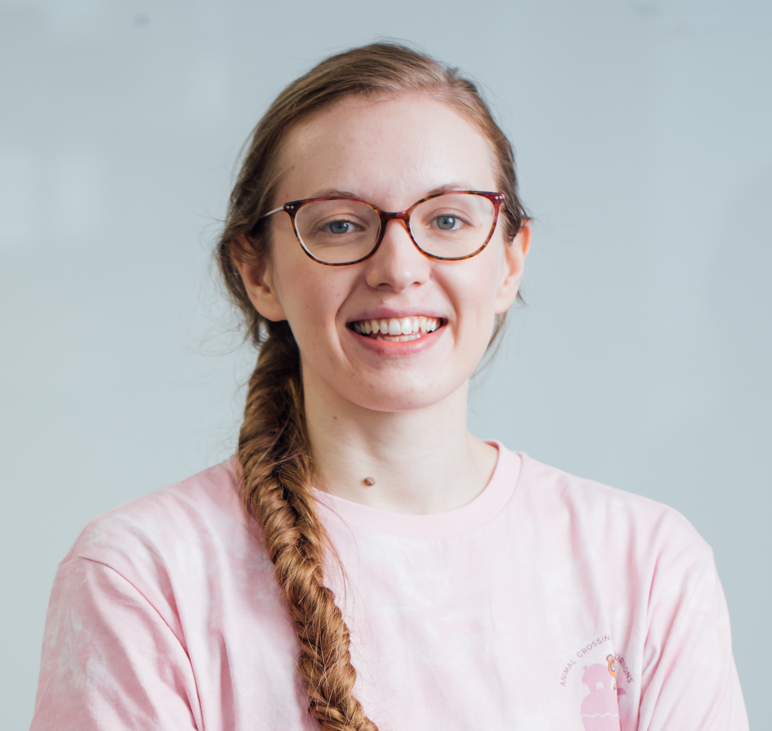
Dr Claire Hill
Dr Claire Hill completed her PhD in Interdisciplinary Bioscience at Oxford University in June 2021. Claire’s PhD project explored cell-communication and how these processes are disrupted during disease.
Following this, Claire started as a Research Fellow in the Molecular Epidemiology and Public Health group at QUB, led by Prof AJ McKnight. Her research project now focuses on exploring the multi-omic features of chronic kidney disease, as well as diabetic kidney disease. Multi-omics is the integrated study of numerous biological features at once, such as genetic, gene expression or protein expression changes, which together can help us understand the complex nature of kidney disease.
Claire is also interested in exploring the sex-specificities of kidney disease, to help us understand why renal decline occurs at different rates in males and females. The ultimate aim of her work is to understand the mechanisms which lead to kidney disease onset and progression, and with this deeper understanding we can develop more advanced diagnostic and therapeutic tools, taking a more personalised care approach to reduce the global impact of kidney disease.
Links to Claire’s research papers:
https://www.frontiersin.org/articles/10.3389/fneph.2022.923068/full
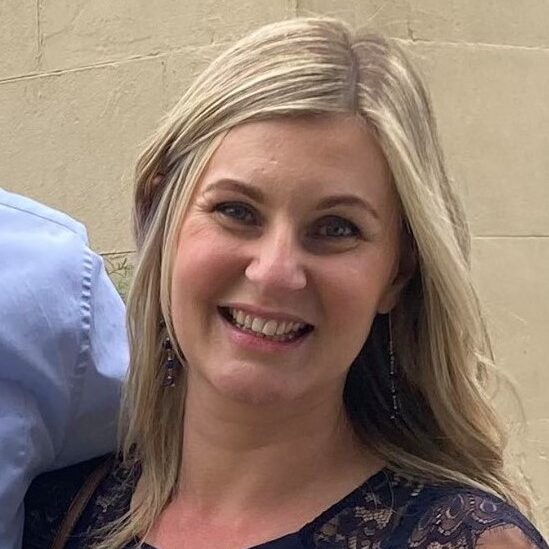
Anna Wilson
Since 2019, Anna has held the post of Administrator for the Renal Arts Group (RAG), a collaborative research group based at the School of Nursing and Midwifery at Queen’s University Belfast. Anna has over 10 years’ experience working in the arts and heritage sector in Northern Ireland in administrative, education and project management roles, and completed an MSc in Educational Multimedia in 2011 focussing on how digital technology can support engagement and encourage interaction with the arts.
Anna has been responsible for the co-ordination and management of RAG, supporting the development of projects alongside people living with kidney disease, such as ‘The Starman, The Superheroes and The Wizards’ scriptwriting project and the ‘Create and Connect’ online arts project for the renal community during the Covid-19 pandemic. Anna is also responsible for promoting the work of RAG at events such as the ESRC Festival of Social Science 2019 and the NI Science Festival in 2022 and 2023, and has undertaken research projects such as the development of guidance for volunteer-led arts interventions in renal units.
Anna is also the Research Assistant on a research study assessing the feasibility of a mindfulness intervention to support the mental health of people with kidney disease and will commence a PhD in Autumn 2023 focussing on supporting a holistic approach to personalised care for patients with kidney disease.
Publications:
Wilson, A., Carswell, C. & Noble, H. (2021) Developing Guidance on Implementing Volunteer-Led Intradialytic Arts Activities in Haemodialysis Units. Healthcare 9 (11) 1506 https://www.mdpi.com/2227-9032/9/11/1506
Wilson, A., Carswell, C., Burton, S., Johnston, W., Baxley Lee, J., MacKenzie, A., Matthews, M., Murphy, P., Reid, J., Walsh, I., Wurm, F. & Noble, H. (2022) Evaluation of a Programme of Online Arts Activities for Patients with Kidney Disease during the COVID-19 Pandemic. Healthcare 10 (2) https://www.mdpi.com/2227-9032/10/2/260
Wilson, A.; McKeaveney, C.; Carswell, C.; Atkinson, K.; Burton, S.; McVeigh, C.; Graham-Wisener, L.; Jääskeläinen, E.; Johnston, W.; O’Rourke, D.; et al. Examining the Acceptability and Feasibility of the Compassionate Mindful Resilience (CMR) Programme in Adult Patients with Chronic Kidney Disease: The COSMIC Study Protocol. Healthcare 2022, 10, 1387. https://doi.org/10.3390/healthcare10081387
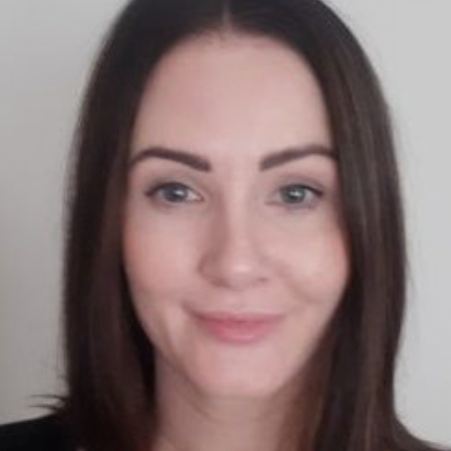
Dr Clare McKeaveney
Dr Clare Mckeaveney (BSc, PhD, MBPsS, CPsychol, AFHEA) is a psychologist and renal researcher, exploring the intersection of psychological dynamics and renal health.
Clare has been a Lecturer at the School of Nursing and Midwifery, Queen’s University Belfast, since 2021. She possesses a rich background in quantitative and qualitative research methodologies. Her work seeks to illuminate the psychosocial impact of renal disease across a diverse range of topics including cachexia, transplantation, and the global implications of COVID-19 within the renal healthcare community.
Clare and her team are working on a new grant awarded by the Northern Ireland Kidney Research Fund to enhance patient education in kidney disease and transplantation, exemplifying a holistic approach to healthcare advancement.
Publications:
Corr, M., McKeaveney, C., Wurm, F., Courtney, A. E., & Noble, H. (2023). The Educational Needs of Adolescent and Young Adult Renal Transplant Recipients-A Scoping Review. Healthcare (Basel, Switzerland), 11(4), 566. https://doi.org/10.3390/healthcare11040566
Blair, C., Slee, A., Davenport, A., Fouque, D., Johnston, W., Kalantar-Zadeh, K., Maxwell, P., McKeaveney, C., Mullan, R., Noble, H., Porter, S., Seres, D., Shields, J., Swaine, I., Witham, M., & Reid, J. (2022). Developing an Evidence and Theory Based Multimodal Integrative Intervention for the Management of Renal Cachexia: A Theory of Change. Healthcare (Basel, Switzerland), 10(12), 2344. https://doi.org/10.3390/healthcare10122344
McKeaveney, C., Noble, H., Courtney, A. E., Griffin, S., Gill, P., Johnston, W., Maxwell, A. P.,
Teasdale, F., & Reid, J. (2022). Dialysis, Distress, and Difficult Conversations: Living with a Kidney Transplant. Healthcare (Basel, Switzerland), 10(7), 1177. https://doi.org/10.3390/healthcare10071177
Wilson, A., McKeaveney, C., Carswell, C., Atkinson, K., Burton, S., McVeigh, C., Graham-Wisener, L., Jääskeläinen, E., Johnston, W., O’Rourke, D., Reid, J., Rej, S., Walsh, I., McArdle, M., & Noble, H. (2022). Examining the Acceptability and Feasibility of the Compassionate Mindful Resilience (CMR) Programme in Adult Patients with Chronic Kidney Disease: The COSMIC Study Protocol. Healthcare (Basel, Switzerland), 10(8), 1387. https://doi.org/10.3390/healthcare10081387
Wurm, F., McKeaveney, C., Corr, M., Wilson, A., & Noble, H. (2022). The psychosocial needs of adolescent and young adult kidney transplant recipients, and associated interventions: a scoping review. BMC psychology, 10(1), 186. https://doi.org/10.1186/s40359-022-00893-7

Dr Michael Corr
Michael graduated from medicine at Queen’s University Belfast in 2016 with an additional BSc in Medical Science. He entered Nephrology Higher Specialty training in 2020. In 2021 he graduated with a MSc in Clinical Education.
Michael has a long-held interest in research and in 2022 decided to combine his ongoing clinical nephrology training with formal academic/research training. He was appointed to the prestigious Irish Clinical Academic Training (ICAT) programme which has funded his PhD studies at Queen’s University Belfast with collaborators from Galway University and University College Cork. Michael is researching why kidney transplants fail more commonly in young people.
NIKRF have awarded Michael additional funding to support his PhD research, allowing him to use cutting edge technology and methods to explore this important clinical problem.
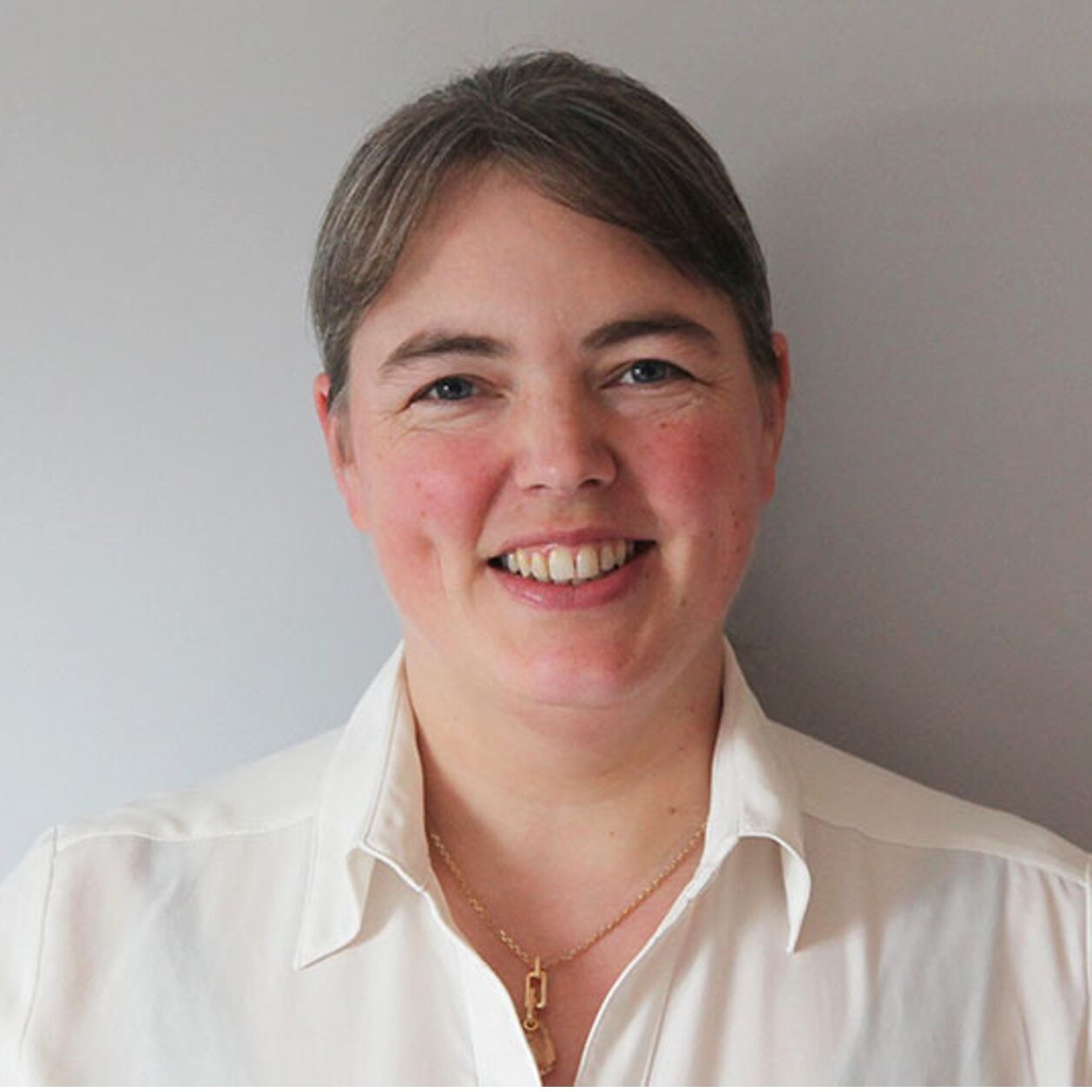
Amy Jane McKnight
Hello, my name is AJ & I’m a scientist. I love solving puzzles, or at least finding individual pieces that help make a picture complete. Discovering the best approach, finding the right evidence to drive changes in health and social care, sharing understanding, knowledge, and supporting the next generation are key driving forces. I’ve been fortunate to have received support from The Northern Ireland Kidney Research Fund that helps us learn more about kidney disease. Link to short video showcasing some of our team’s kidney research: https://youtu.be/6Ifc3KCU8W0
I graduated from The University of Aberdeen in 2000 & came home to NI with a PhD studentship funded by the NI Department for the Economy researching genetic risk factors for diabetic kidney disease with Professor Peter Maxwell and Dr David Savage. I got the bug for kidney research and was generously funded by the NIKRF for a postdoctoral fellowship (2003), during which I also completed a Masters degree with distinction in Bioinformatics at the University of Manchester and a postgraduate certificate with distinction at the University of Leeds. In 2006 I started as QUB’s first Lecturer in Bioinformatics, becoming tenured in 2009, and moving relatively quickly through Senior Lecturer, Reader and Professorial roles. Life wasn’t quite a straightforward as it seems – my family life is complicated and I’ve had a series of personal health complications that naturally disrupted research. For example, in 2015 I had a spinal injury and was paralysed from the waist down for a while…2018 I had cerebral oedema (excess fluid on the brain)…2020 the COVID-19 pandemic was declared so our molecular labs were repurposed to facilitate sample reception and staff seconded to help deliver COVID-19 testing…2021 my daughter was born earlier than expected…perhaps it is not surprising I’m a strong advocate for including voices from people with lived experience and flexibility in the workplace!
Today, I run a busy multidisciplinary research team. I co-Lead the Epidemiology and Public Health research team within the Centre for Public Health at QUB, which has ~30 staff and I am also the Director for Postgraduate Research within the School of Medicine, Dentistry and Biomedical Sciences at QUB. I (mostly) love my job. There are always challenges to meet, I get to work with superb local and international colleagues making new discoveries, and best of all, I see the real impact that research funded in Northern Ireland has on our local population.
Three major research achievements:
- Helping drive forward progress for rare kidney diseases in Northern Ireland, including delivering research that informed the NI Rare Disease Action Plan. That includes helping deliver new diagnoses for kidney patients with inherited kidney disease. More of our Rare Disease Research.
- Identifying new clinical, environmental, and biological features that help identify people at higher risk of developing kidney disease and / or progressing to end stage kidney disease.
- Bringing together networks of experts to help answer critical questions for kidney disease, including setting research priorities with people who have lived experience of diseases, having people with lived experience as formal investigators on funded grants, and setting up All Ireland adult, children and young person’s rare disease advisory groups.
Direct funding from NIKRF has supported the:
- Purchase of state-of-the-art equipment, without which many of the discoveries for inherited risk factors for kidney disease in NI would not have been possible.
- Potential for seed funding that helps generate pilot / preliminary data, making us more successful securing funding for larger-scale international research.
- Next generation of kidney researchers in NI, helping us build a critical mass of researchers with diverse skills interested in kidney disease. NIKRF provides valuable training support for clinical and scientific focused junior colleagues. Colleagues who have benefitted from this support include:
- Dr Diane Currie for a PhD studentship – Diane helped identify novel genetic markers associated with kidney disease, obtained five publications from her PhD project (2007-2010), and is now a School teacher, conveying her enthusiasm for science to the next generation of students.
- Dr Laura Smyth for postdoctoral fellowship support – Laura identified many biological markers associated with kidney disease, is now a lecturer at QUB (2023), and plans to have three PhD students working on kidney research from October 2024.
- Tiernan Coulter for a summer studentship -> Tiernan explored associations with telomere length and kidney disease. He has two publications from his summer project and received a scholarship for a Masters degree (2023).
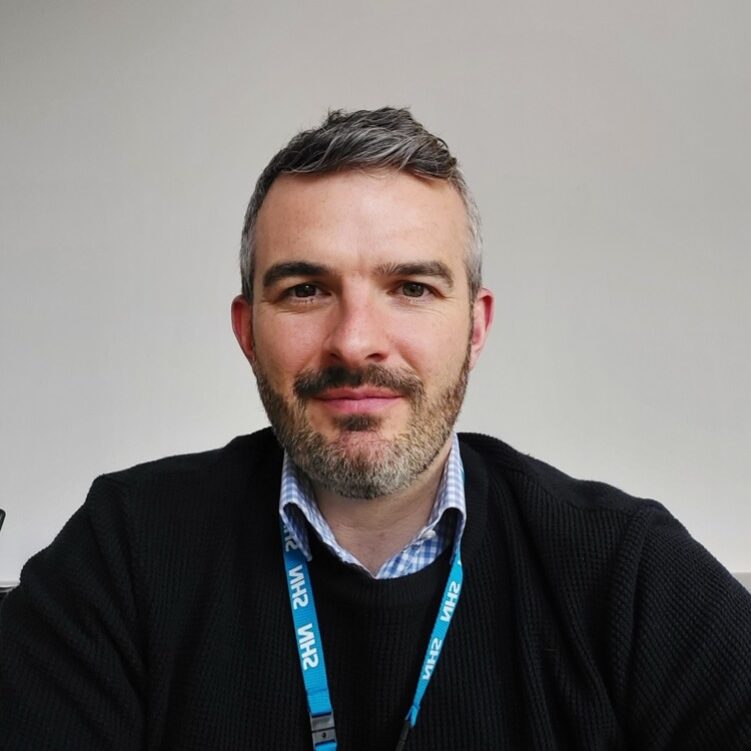
Damian McGrogan
Damian McGrogan MD FRCS, Consultant Renal Transplant and Vascular Access
Project Title: SAVE THE VEINS!
The purpose of this project is to raise awareness of vein preservation among patients and staff delivering care to patients with kidney failure and transplantation.
Vein preservation is a national priority. The significant benefits of vein preservation are to ensure that when required, a suitable vein is present for formation of an arteriovenous fistula. This is the access used by patients for haemodialysis. Aim is to empower patients to take responsibility for their own personalised vein preservation strategy and encourage staff to support patients on their renal failure journey. An education programme will be put in place.
The Northern Ireland Vascular Access team are undertaking a regional Save The Veins! project supported by RQIA and NIKRF. NIKRF have kindly agreed to fund the project for data collection. A snapshot audit of current practice has been undertaken which demonstrates that, whilst most patients are getting bloods sampled at a single attempt, that 3 quarters of patients included were having blood taken from the elbow. Staff and patient education is underway to help improve this and will be followed by a data collection period.




